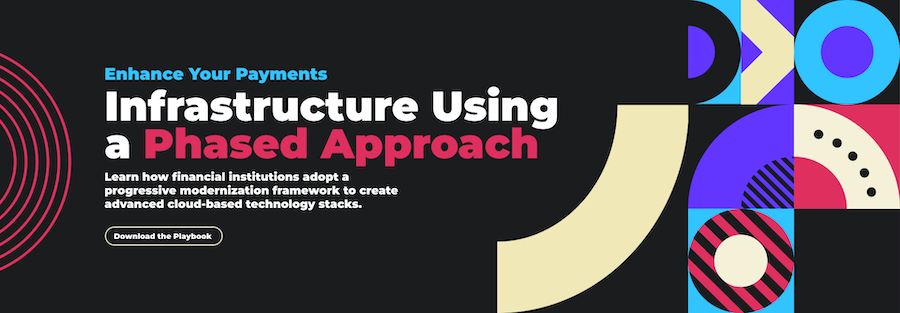What is credit card tokenization?
In today's digital age, where electronic transactions are becoming the norm, the security of credit card payments and financial data has never been more crucial. Credit card tokenization emerges as a powerful solution to this concern, offering an innovative approach to safeguarding sensitive credit card data and payment information.
By understanding the mechanisms and benefits of credit card tokenization, businesses and consumers alike can significantly reduce the risks associated with cyber theft and credit card fraud. In this blog post, we will unravel the complexities of how credit card tokenization works, demonstrating how it functions as a pivotal element in the modern security infrastructure to protect cardholder data and support secure transactions.
What credit card tokenization is
Credit card tokenization is a process of replacing sensitive payment information, such as credit card numbers, with non-sensitive identifiers called tokens. These credit card tokens are randomly generated strings of characters that represent the original payment data without revealing any sensitive details.
The tokenization process begins when a customer initiates a transaction by providing their credit card information. The merchant then encrypts this data and sends it to a payment processor or gateway, which generates a token and stores it in place of the customers' credit card information and data.
To complete a transaction, the merchant sends the token along with other required transaction details to the payment processor. The processor then decrypts the token and retrieves the original credit card information from their secure storage system. This information is used to process the transaction without exposing any credit card data to potential cyber threats.

The mechanics of payment tokenization
Payment tokenization involves several key components, including encryption, storage systems, and secure transmission of data. Take a closer look at each of these elements to understand how they work together to provide robust security for financial transactions.
Encryption
Encryption is the process of converting plain text into an unreadable format, called ciphertext, using a cryptographic algorithm and a unique key. When a customer's credit card information is entered, it is immediately encrypted before being sent to the payment processor. This encryption process ensures that even if the data is intercepted, it would be unreadable and useless to potential hackers.
Storage systems
Tokenization relies on secure storage systems to store and manage tokens. These systems are designed with robust security measures in place to protect credit card data from unauthorized access. They are regularly monitored and audited to ensure compliance with industry standards.
Secure transmission of data
To complete a transaction, the token must be transmitted securely from the merchant to the payment processor or gateway. This is typically done using Secure Sockets Layer (SSL) or Transport Layer Security (TLS) protocols, which provide an encrypted connection between the two parties. This ensures that the token remains protected during transmission and cannot be intercepted by malicious actors.
Benefits of credit card tokenization
Security benefits of payment tokenization
 The primary benefit of credit card tokenization is enhanced security. By replacing sensitive payment information like credit card details with tokens businesses can significantly reduce the risk of data breaches and fraud attempts. Even if a hacker manages to obtain the token, it would be useless without the corresponding key required for decryption.
The primary benefit of credit card tokenization is enhanced security. By replacing sensitive payment information like credit card details with tokens businesses can significantly reduce the risk of data breaches and fraud attempts. Even if a hacker manages to obtain the token, it would be useless without the corresponding key required for decryption.
Since encrypted data is not stored on merchants' systems, they are not subject to the same security regulations and requirements as businesses that store credit card data. This helps to reduce compliance costs and mitigate potential liability for data breaches.
Convenient for businesses and consumers
Aside from security, credit card tokenization also offers convenience benefits for both businesses and consumers. With tokenization, customers no longer need to provide their credit card information every time they make a purchase. This reduces the risk of human error and speeds up the checkout process, resulting in improved customer satisfaction.
For businesses, tokenization eliminates the need to store sensitive data, which can be costly and time-consuming. It also provides an added layer of security for recurring payments, as tokens can be used to accept payments multiple times without exposing the original credit card information.
Tokenization's role in PCI DSS compliance
Tokenization plays a crucial role in achieving Payment Card Industry Data Security Standards (PCI DSS) compliance, an essential requirement for businesses that handle cardholder data. Since tokenized data is not considered as sensitive information, it is not subject to the same strict requirements as storing and transmitting unencrypted card data.
By implementing a tokenization system, businesses can reduce their scope of PCI compliance and simplify the compliance process, saving time and resources.
How tokenization can simplify the payment process
Tokenization also offers a simplified payment process for banks, businesses, and consumers.
- For businesses: With tokenization, businesses can securely store customer information without needing to access or store sensitive data. This eliminates the need for manual entry of credit card information, reducing the potential for human error and speeding up the checkout process.
- For customers: Tokenization allows for quick and convenient payments without the hassle of entering sensitive credit card information every time. This not only saves time but also provides peace of mind knowing that their data is protected.
- For banks: By adopting tokenization, banks can leverage a more secure framework for processing transactions, thereby reducing the overhead associated with fraud detection and prevention. This secure environment minimizes the risk of financial losses due to data breaches or fraudulent activities.
Tokenization facilitates a smoother and faster transaction verification process. Banks can verify the authenticity of a transaction more efficiently without needing to access sensitive cardholder information directly. This accelerates the approval process, enhancing customer satisfaction by reducing transaction times.
By reducing the scope of PCI DSS compliance, banks can allocate resources more effectively, focusing on innovation and customer service improvement rather than compliance and security management. This optimization of resources not only reduces operational costs but also allows banks to be more agile in the rapidly evolving financial technology landscape.
Implementation of credit card tokenization
How businesses can implement tokenization
Implementing credit card tokenization requires businesses to work with a payment processor or gateway that supports tokenization. This can typically be done through the integration of an API (Application Programming Interface) that enables the secure exchange of sensitive payment data between systems.
Once integrated, the payment processor will handle the encryption and storage of sensitive customer data, providing merchants with tokens for future transactions. Businesses must also ensure that their systems and processes are updated to support tokenization and securely manage the tokens received from the payment processor.
Costs associated with implementing tokenization
The costs associated with implementing tokenization may vary depending on the payment processor or gateway chosen, as well as the size of the business and its transaction volume. However, businesses should consider the long-term benefits and cost savings associated with increased security and reduced compliance requirements.
The role of service providers
 Service providers, such as payment processors and gateways, play a significant role in ensuring the successful implementation of credit card tokenization. They are responsible for securely handling and storing sensitive data, generating tokens, and providing businesses with the necessary tools to integrate credit card payment tokenization into their systems.
Service providers, such as payment processors and gateways, play a significant role in ensuring the successful implementation of credit card tokenization. They are responsible for securely handling and storing sensitive data, generating tokens, and providing businesses with the necessary tools to integrate credit card payment tokenization into their systems.
As such, it is crucial for businesses to carefully choose their service providers based on their security measures, compliance standards, and reputation in the payments industry.
Remaining vigilant against potential threats
While tokenized payment information offers significant security benefits by replacing sensitive data, businesses must remain vigilant against potential threats. This includes regularly updating systems and processes to ensure they are secure, as well as monitoring for any suspicious activity or unauthorized access attempts.
Additionally, businesses should also have policies in place to protect the encryption keys used for tokenization, as they are crucial in maintaining the security of sensitive data.
Future of credit card tokenization
 As the payment technology landscape evolves, credit card tokenization is expected to become an even more critical component of secure transactions. The increasing use of mobile payments and e-commerce has highlighted the need for enhanced security measures in mobile wallets, making tokenization an increasingly popular choice for businesses.
As the payment technology landscape evolves, credit card tokenization is expected to become an even more critical component of secure transactions. The increasing use of mobile payments and e-commerce has highlighted the need for enhanced security measures in mobile wallets, making tokenization an increasingly popular choice for businesses.
Advancements in technology have made tokenization more accessible and cost-effective, allowing smaller businesses to adopt this practice as well. The use of biometric authentication, such as fingerprint or facial recognition, in combination with tokenization is also on the rise, further enhancing security and simplifying the payment process for consumers.
Modernize your bank's payments solutions with Episode Six
At E6, we understand the importance of secure and efficient payments for businesses, banks, and consumers. That's why we offer a modern payment processing platform that includes tokenization as one of its many features.
Our platform is designed to help banks streamline their processes, reduce costs, and stay ahead in the competitive financial technology landscape. And with our progressive modernization approach, you don't have to worry about overhauling your entire tech stack at once. Contact us today to learn more.

E6 Team
About the Author
Episode Six provides financial institutions with solutions for legacy payment stacks that aren’t fulfilling the needs of an expanding industry. We are a global provider of enterprise-grade payment technology and ledger management infrastructure for banks that need to keep pace with disruptors and evolving consumer preferences.


